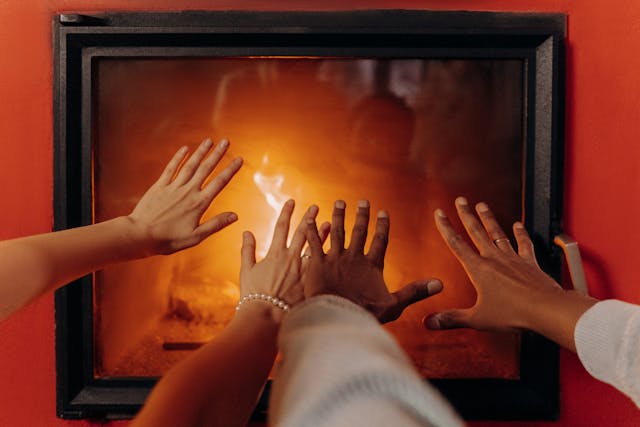The technology being you today is fantastic for heating and cooling indoor spaces mechanically: furnaces that extract heat almost 100% efficiently from fuels and heat pumps that use the earth as a source of heat. It would help if you kept in mind that all heating and cooling systems share some constants, so when evaluating options, keep these in mind. This guide will give you a guide about affordable heating and cooling and how to obtain it?
Heating and cooling
In terms of constants, the thermostat is the first. A thermostat allows you to maintain consistent indoor temperatures unless your primary heat source is a woodstove. Your heating or cooling system will start when the thermometer in the thermostat indicates a temperature deviation of just a few degrees from the target temperature. A thermostat switches off the heating (or cooling) system once the target temperature has been reached.
Second, insulation must be considered. During the winter, houses require insulation to prevent heat loss, while during the summer, it is needed to prevent heat gain. Winter drafts can be prevented with insulation, while summer heat can be prevented with insulation. As well as being more comfortable, well-insulated houses are more energy-efficient, making them more affordable to heat and cool.
When assessing heating and cooling requirements, efficiency is the final constant. About half of the total energy budget goes toward heating and cooling in a typical household. In addition to saving money, optimizing efficiency minimizes fossil fuel emissions’ environmental impact.
Affordable heating and cooling
Approximately half of the global energy consumption comes from space heating, cooling, and providing hot water, accounting for almost a third of the final energy consumption. In order to achieve the ultimate goal of the affordable heating and cooling of buildings Innovation Challenge, building envelope improvements and core heating and cooling systems must deliver affordable heating and cooling without generating carbon emissions.
How to obtain Affordable heating and cooling?
Energy consumption and CO2 emissions can be significantly reduced by developing new materials, processes, and systems. Energy bills can be reduced through innovative technologies and practices, global access to energy is improved, renewable technologies become more competitive, and energy security can be enhanced.
Innovation in heating and cooling could be accelerated significantly through this Innovation Challenge, which will enable international collaboration. Innovation in heating and cooling could be accelerated significantly through this Innovation Challenge, which will facilitate international collaboration. It will enable the development of new solutions and reduce the cost of existing and emerging technologies. A commitment to double clean energy research spending and collective research effort will help achieve this goal.
Read more:Each And Everything You Need To Know About Standing Seam Metal Roofing
During this Innovation Challenge, six main areas will be addressed. Alternative solutions must be developed in each case to replace fossil fuels with less costly, practical alternatives.
In addition to thermal energy storage solutions aimed at adjusting energy supply to heating and cooling demand, intelligent energy networks, and passive heating and cooling, the building interior climate can be adjusted to take advantage of passive heating and cooling.
This research aims to improve performance, reduce costs, achieve a more integrated integration of electrical and thermally driven heat pumps, and explore opportunities to exploit the availability of secondary heat.
A study of heat sinks and sources that do not occur in the atmosphere, including evaporation cooling, sources/sinks from the ground, sea, aquifer, and wastewater, and performance enhancements for conventional air-cooled air conditioning systems that cool hot climates.
Using emerging ICT technology and big data science for predictive maintenance and optimization of poorly maintained, degraded, and improperly controlled heating, cooling, and air conditioning equipment responsible for wasting up to 30% of a building’s energy.
A physiological study of thermal comfort aims to understand how human comfort needs vary according to physiological, psychological, and behavioral factors. Depending on the climate and context, different cooling and healing approaches are required. Optimally designing, installing, and operating heating and cooling technologies is a core focus.
Issues related to affordable heating and cooling
There are differences in the relative energy demands for heating and cooling worldwide. The Northern Hemisphere is experiencing a steady increase in energy consumption for space and water heating. By 2050, space cooling demand in emerging and developing economies is expected to increase 300% from today’s levels, representing a smaller portion of global energy demand.
This growth will also be impacted by rising global temperatures caused by climate change CO2 emissions are due to the provision of heat, which accounts for three-quarters of the world’s energy requirements for heat. In addition to relying primarily on electricity and natural gas for space cooling, this process also contributes to high carbon dioxide emissions.
Solution costs should be the same or lower than fossil fuel alternatives to encourage the adoption of low-carbon heating and cooling. When it comes to low-carbon heating and cooling, there is a mismatch between supply and demand. The demand for heating and cooling is subject to significant daily and seasonal fluctuations, as well as the supply of renewable energy.
In some regions, this results in storing energy intraday and interpersonally. Within this Innovation Challenge, affordability must be measured at a systems level, and energy efficiency must also be considered.
Will HVAC costs decrease in 2022?
Price increases for new HVAC systems are expected in 2022, according on recent patterns and pronouncements by manufacturers. In addition to the present price rises in the building industry, there are other factors as well.









